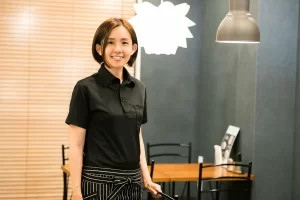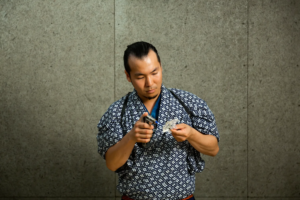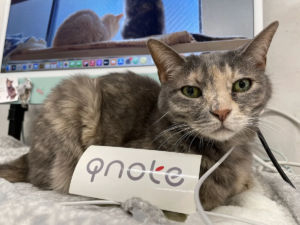Not Everyone Has to Be an Autonomous Employee – Hyakushokuya’s Open-Minded Management
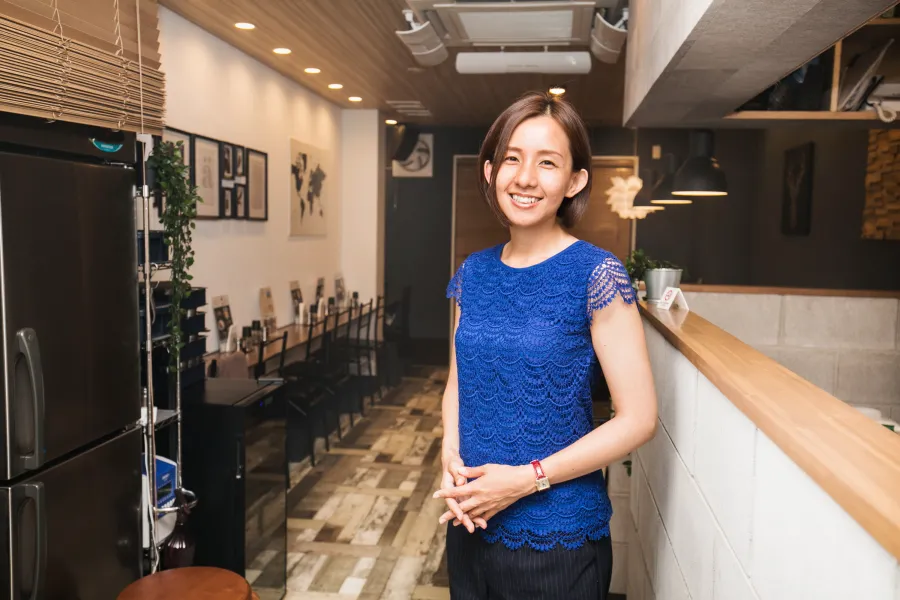
With four branches in Kyoto City, Hyakushokuya has become famous for its signature dishes such as steak donburi, sukiyaki, and meat sushi, gaining widespread attention from both local residents and foreign tourists from abroad. However, regardless of the number of customers lining up, it only serves 100 meals per day. The restaurant is only open for three and a half hours during lunch, allowing employees to go home without having to work overtime.
Hyakushokuya, which has come under the spotlight for its business model that achieves the perfect balance between creating a pleasant work environment for employees and safeguarding the company’s profits, is managed by Akemi Nakamura, Representative Director of minitts Co., Ltd.
What is Nakamura hoping to achieve by running Hyakushokuya in this way? After learning about the secrets of the company’s unique business model and her current “Hyakushokuya 1/2” project in Part 1, Part 2 delves into Nakamura’s career, values, and views on work, as well as her management methods and mindset in terms of promoting diversity.
Worrying Feels Like Carrying a Heavy Baggage
WORK MILL: Franchising “Hyakushokuya 1/2” turned out to be a huge challenge for you. You gave up after two months… How were you able to be so decisive?
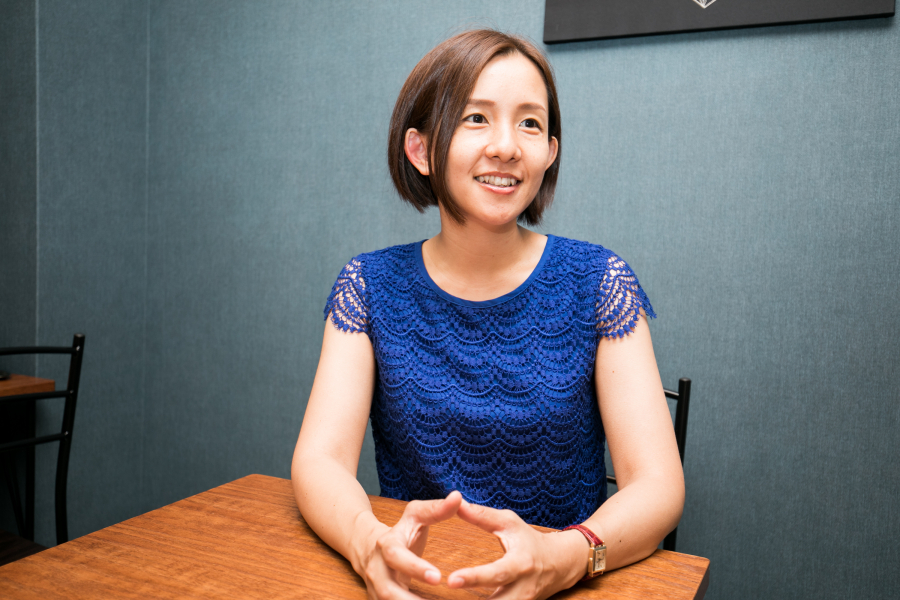
─Akemi Nakamura, Representative Director, minitts Co., Ltd.
Akemi Nakamura was born in Kyoto in 1984. After graduating from Kyoto University of Education, she worked in public relations at a vocational school before setting up Hyakushokuya as a Japanese steak donburi specialty restaurant in 2012. She then opened other branches of the restaurant that specialize in sukiyaki and meat sushi. The restaurant has gained widespread attention for its “zero overtime” policy despite its incredible popularity, with people standing in line every day. In 2017, Hyakushokuya was one of the companies featured in the “New Diversity Management Selection 100” list. In 2019, Akemi Nakamura was awarded Nikkei WOMAN’s “Woman of the Year 2019” Grand Prize. She opened “Hyakushokuya 1/2” in June of the same year. She is also the author of “Let’s reduce our sales: How I was liberated from the obsession with business performance” (Writes Publishing Inc.).
Akemi Nakamura (hereinafter, “Nakamura”): I think it is because I am someone without any sense of vanity. Even if someone who is reading this article criticizes me on social media and cannot believe that I gave up despite what I wrote in my book, all I can say is, “That’s right. I failed,” in a matter-of-fact way.
I actually feel a physical “weightiness” when I am emotional. Just as worrying triggers physical discomfort, whenever I worry about what I should do, I feel a tangible weight on me, as if I were carrying a heavy load. My heart starts to feel heavy. That’s why I always want to relieve any burden as quickly as possible. If you want to run fast, you cannot be running while carrying a bale of rice.
When I try to pin down what this heavy feeling might be, I realize that it might be my silly sense of pride or a gloomy feeling that things are not going well with someone. Once I do that, I can focus on trying to address the problem instead of spending time worrying about it.
WORK MILL: But I think these gloomy periods last longer for many people.
Nakamura: That’s right… not everyone can think this way. However, if you take the plunge and find success, you can certainly do it again the next time. Once you succeed, you can be even more decisive the next time. I believe my decisiveness today is the result of constantly making decisions, no matter how small they are, and accumulating successful experiences.
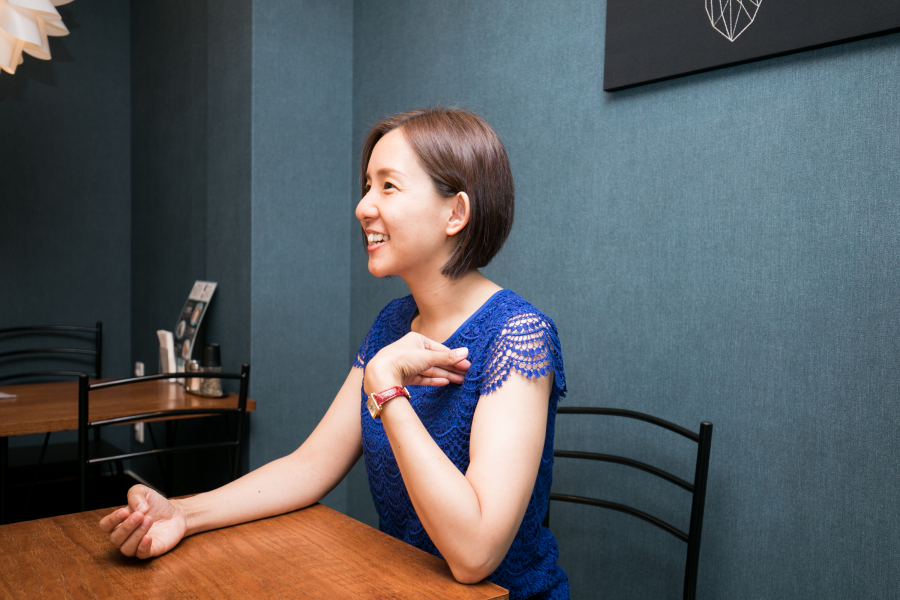
WORK MILL: To begin with, you had to be decisive to limit the number of meals served each day to 100.
Nakamura: That kind of happened by chance, though. When we started the restaurant, it was just me, my husband, and my mother-in-law, so we had discussed it would be enough if we serve 100 meals between the three of us. The first month actually did not go very well, but we started to get a lot more customers after we were featured in blogs and the media. We then hired more people because we could not manage the restaurant with just the three of us, and we opened more branches as our staff grew…
It may seem like I often move forward with conviction, but deep down, I always feel a sense of trepidation. In fact, I am constantly struggling and wondering what I should do.
Actually, I am the ultimate scaredy-cat. I am scared about everything, and I always worry about all my employees and wonder if there is something bothering them. So, even for things that other companies would typically ask employees to sort out themselves, I usually do them on my own because I would think, “Everyone must be busy with their everyday tasks, so I should do this myself.”
WORK MILL: Other companies tend to value employee autonomy, where employees can think and act on their own. In fact, we often see on job postings that companies are looking specifically for such individuals.
Nakamura: But I think there are all kinds of people in the world. Of course, there are some individuals who are proactive, but there are also those who are not.
I had worked as an employee of a vocational school in the past, but I originally wanted to become a teacher. If you remember what it was like in your school classes, not every child is able to speak up. Some children are more reserved, while the mischievous ones would suddenly jump out at you.
When dealing with such situations, the first thing teachers should do is to understand the respective strengths and weaknesses of each student, instead of getting everyone to speak up proactively. Doing this allows them to help students develop their strengths further and compensate for their weaknesses with the strengths of other people. I believe that should be the basic approach of any teacher.
WORK MILL:It is true that some teachers used to force all students to develop the same skills, but I think doing that has become increasingly difficult.
Nakamura: Yes, and I think that applies to society as well. There is no need at all to force yourself to develop a skill that you dislike or are not good at. If anything, you will find many other people who enjoy or are good at that particular skill. Conversely, if we can help people find something that only they can do and are good at, I believe everyone will be able to work happily in roles that best suit them.
Given that many companies in the world today value individuals who are good at coming up with their own ideas and communicating them, I would like my own company to at least value people who are not the best at taking the initiative to do things but can do exactly what they are told and be trusted to do so with peace of mind. I hope we can create an environment where people like that can contribute as well.
That is probably the reason why we have gathered the kind of employees we have today. Among our employees are those who had struggled during Japan’s “employment ice age” after the bubble burst, elderly women in their 70s, mothers who are raising children, and people who are hard of hearing… We have people from all sorts of backgrounds, but they are all kind, reliable, and serious in their work.
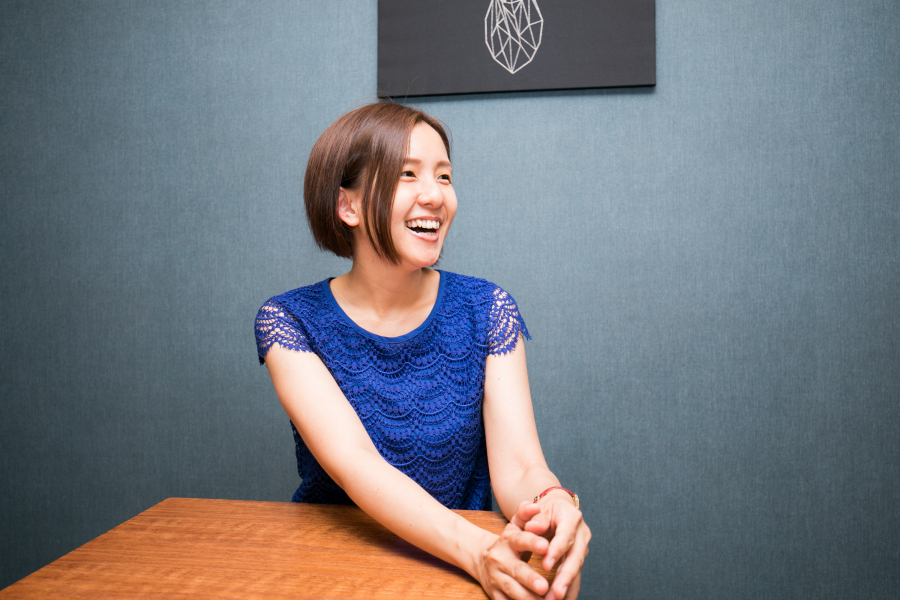
I Don’t Get Angry, but I’m a Straight Shooter
WORK MILL:You wrote in your book that everyone is a member of the minority to begin with. While there is some truth to that, I also feel that when you are busy with work, you cannot help it sometimes but think that it is unfair if others leave early or blame them for not getting their work done earlier. Is there anything you try to keep in mind when managing such a diverse organization?
Nakamura: My employees often tell me this as well, but I am unbelievably patient. (laughs) For instance, we have an employee who was habitually late. She was late once, and again the following month, and again the month after that. But I did not get angry.
After around six months, I asked her, “What do we need to do so that you won’t be late? What time should we start work to make sure you won’t oversleep?” “Maybe 11:00 AM,” she said. So I said, “Well, let’s try that then,” and changed the time we start work. Even so, she would sometimes arrive at work a minute early or two minutes late.
She is a university student who was also working at an izakaya, so she had a highly erratic sleep routine. Instead of getting angry, I simply encouraged her by saying, “Oh! You’re not as late this month as you usually are! Let’s applaud to her effort, everyone!” She then suddenly said, “Maybe I can come to work a little earlier,” and requested to start work at 10:45 AM instead. She can now come to work at 10:30 AM without being late anymore.

WORK MILL:Maybe the key is to have people do something because they want to.
Nakamura: That’s right. I used to be a rather impatient person in the past. But now that I have started my own business, I realized that even something said casually from my perspective may weigh on others ten times as heavily as what I had originally intended.
Soon after opening the restaurant, there was once when I had reprimanded an employee harshly. The employee took offence and went home right away. I thought my words would sink in more if I was harsh with him, but they made him shut down instead.
I reflected on what I did and realized I should have done better, so I apologized to him afterwards. I said, “Sorry, my tone was really bad.” Through repeated failures like that, I began to think about how I should behave as the company’s president. For the past three years or so, I have not gotten angry.
WORK MILL:It sounds really difficult to reflect on our actions and change our behavior in the way you did. What makes it possible for you to do that?
Nakamura: It is definitely difficult for adults to apologize. Our personal emotions always get in the way. However, what I have learned in the course of running a restaurant is that if I make decisions based solely on my intentions or emotions, such as “I want to make things easier for myself” or “it is easy to ask that person to do this,” the organization will not be successful.
Therefore, when I am working, I always try to imagine that there is a security camera behind me watching every word and action of mine. This allows me to control myself whenever I feel like my emotions are about to get the better of me. To some extent, doing this also helps me to approach something as part of my work, contemplate things thoroughly, and apologize to others. This is probably something that anyone can do once they have experienced success doing it.
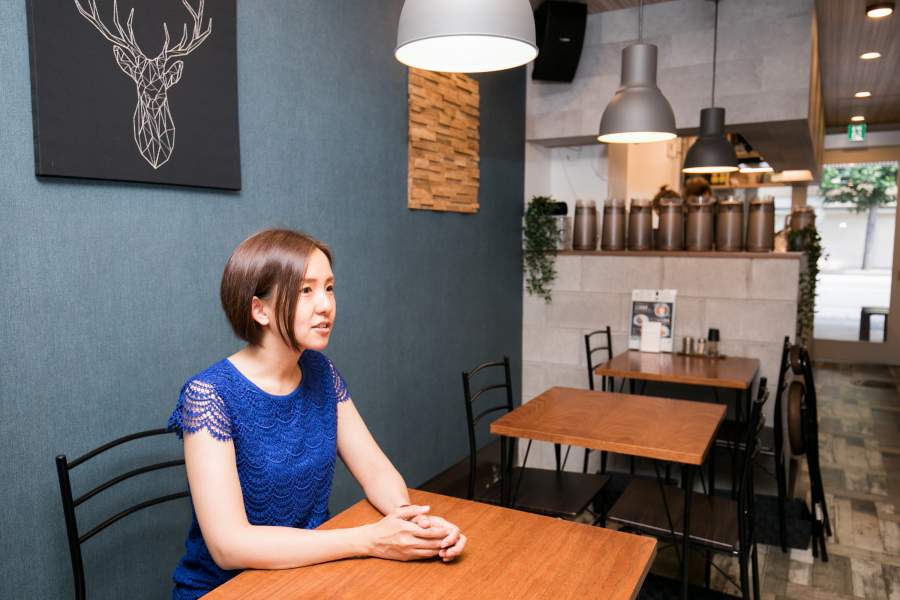
WORK MILL: Have you had any success in this regard?
Nakamura: When I was still an office worker, there was an instructor I really disliked. I was at a vocational school for the hotel and bridal industry, and this instructor was in charge of bridal services. She was the kind of flawless person who always had her makeup done perfectly and her hair in a French twist without a single strand of stray hair.
For instance, during a meeting for the school’s open campus event, we asked her if she could do a hands-on demonstration that is easy to understand for the high school students who would be visiting. She coldly replied, “Oh, why do I have to do something like that?” Anyone who had seen her would have been turned off instantly. (laughs) We got along so badly that I even asked my boss at the time if I could be assigned to another instructor.
This situation persisted for a long time, and one day, there was a year-end party for the entire school. I was annoyed and did not want to carry on like this, so I decided to be upfront with the instructor. I went to her seat and told her, “I don’t like you. Why must you always talk in this way?” I did not mince my words. I was a bit buzzed from the alcohol, which helped me muster the courage to say that.
WORK MILL:Whoa…!

Nakamura: After I told her that, the instructor said, “Oh, really? Do I talk like that? Sorry if that’s the case,” to which I responded, “I’m sorry too. Let’s be friends,” and we got along really well after that.
WORK MILL:That’s amazing!
Nakamura: From that day on, she became the instructor I trusted the most in the entire school, and I spoke to her openly whenever I ran into problems and needed advice. This was my greatest success when it comes to being forthcoming with someone about something that is not easy to say.
While I suppose there are ways to interact with others that emphasize the avoidance of negative utterances like “sorry” and “I don’t like it” as much as possible, I was still in my mid-twenties when I learned that having the courage to be straightforward can sometimes solve a problem. I realized that it was okay to say things like that.
So, even now, when I talk to my employees, I would speak my mind and be like, “I’m going to say something that might sound a little harsh. I’ve been hearing from others that you have this issue that bothers them. Would you agree?” Surprisingly, the employee in question is often unaware of it themselves, and they would be like, “Oh, is that so?” When asked what they intend to do about it, they would say, “Sorry, I’ll work on it,” and they often address the issue after that.
WORK MILL:It seems like people just don’t realize it sometimes.
Nakamura: That’s right. Usually, there is just a small discrepancy in terms of the details or approach between what someone is trying to do and what others expect of them, and that can be easily sorted out once the issue is properly communicated. I do not reprimand a latecomer for coming to work late per se, but if there is an underlying problem, that problem needs to be resolved before the lateness itself can be addressed. Once you think about things like that, you will realize there is no need to be angry or overly harsh. As long as we communicate calmly and properly, we can keep the organization functioning well.
Being Happy Even if You Are Not Doing What You Enjoy at Work
WORK MILL:You mentioned just now that you try to be as decisive as possible, but what do you base your decisions on in such situations?

Nakamura: Ultimately, it is about what makes me happy. In my life, I place the greatest importance on whether I can achieve happiness deep down if I act in a certain way.
WORK MILL:You have also said earlier that you do not put your personal feelings first as a manager. How do you reconcile this contradiction?
Nakamura: That’s right. I prioritize my personal feelings when I am thinking about the future, but when I need to address an existing problem, I tend to seal off my personal feelings.
WORK MILL:So you make decisions based on the happiness of your future self.
Nakamura:Yes.
WORK MILL: If that’s the case, do you have a clear idea of what makes you happy?
Nakamura: I do. I am so good at introspection that my husband tells me I am a master of it. I always know what I am good at, what I dislike, what I love, and what makes me uncomfortable. So if I don’t think I need something, I can abandon it without any hesitation. I am often invited to receptions after my lectures, but I do not attend such events because they are not my thing.
I also rarely wear skincare or makeup because I prefer to spend my time on my business or with my family. It is not that difficult for me to think about what makes me happy. That is why I feel strongly about not wanting my employees to do the very things I do not want to do. I do not make them work overtime or hand out leaflets to attract new customers. That’s how we came up with our restaurant’s policy.
WORK MILL:How did you develop your skills at introspection?
Nakamura: I believe the catalyst was job hunting. Whether I wanted to or not, I had to think about my life seriously and how I could earn money. I had applied to a variety of different companies then without much thought.
However, when I was at the final interview with a major telecommunications company, the company’s vice president told me, “If we make you an offer, you may have to start in Wakayama Prefecture. Would that be okay?” That’s when I thought, “Oh, I don’t really want to go there.” Kyoto residents simply love Kyoto too much, not that there is anything wrong with Wakayama. (laughs)
At that time, I wondered why I did not want to leave Kyoto, and for the first time, I thought seriously about my own life. Since then, I have come to value reflecting on what makes me happy.
WORK MILL:Does this mean you have now managed to turn what you love and want to do into your job?
Nakamura: That may be true in my case… but I think it is a little unfair to tell some people to turn their interest into their job or assure them that they will make money someday as long as they are working on something they are passionate about and enjoy, which are things we often hear around the world today.
Not everyone has a clear idea of what they want to do, and I think there is nothing wrong with that. It is possible for those who lack a clear goal to be engaged in work that they do not thoroughly enjoy. Like college students, many people in the world are still on a journey of self-discovery.

WORK MILL:In fact, many people who are already working are still on a journey of self-discovery.
Nakamura: Yes, that’s right. Individuals who have a clear idea of what they want to do are a minority, around one in ten people. These people always come under the spotlight, which has cast “turning your passion into your job” into a trendy slogan that often makes those who do not feel that way embarrassed and think that they cannot be happy. That is not good, in my opinion.
This is why we have embraced the fact that it is okay for your job not to be what you really love. Some people are not good at public speaking or coming up with new ideas, or they feel stressed when they are given a certain task to do. Many of our employees actually feel that they are not suited for leadership roles, and they are just looking to live a simple, ordinary life. I want to make sure my company can protect such people.
WORK MILL: It is quite difficult for me to wrap my head around how you can be so kind to people whose traits differ so much from you. You are a natural leader, a diligent worker, and are good with words.
Nakamura: Yes, I have been a leader since my school days. Perhaps it should be the job of the government to care for those who tend to be left behind by society. And indeed, the government has put in place certain schemes to address the needs of those who clearly belong to a minority group, such as single mothers, the elderly, and the disabled.
However, ordinary young people, mothers who are raising children, and those who had gone through the “employment ice age” have been suffering. There is no system to safeguard the livelihood of those who are somehow doing okay now but who will no longer be able to work full-time if there is a small change to the status quo. I feel that Japan is in danger of going down the wrong path if no one looks out for these groups of vulnerable people. I thought it would be great if there was at least one private company that is able to do just that.
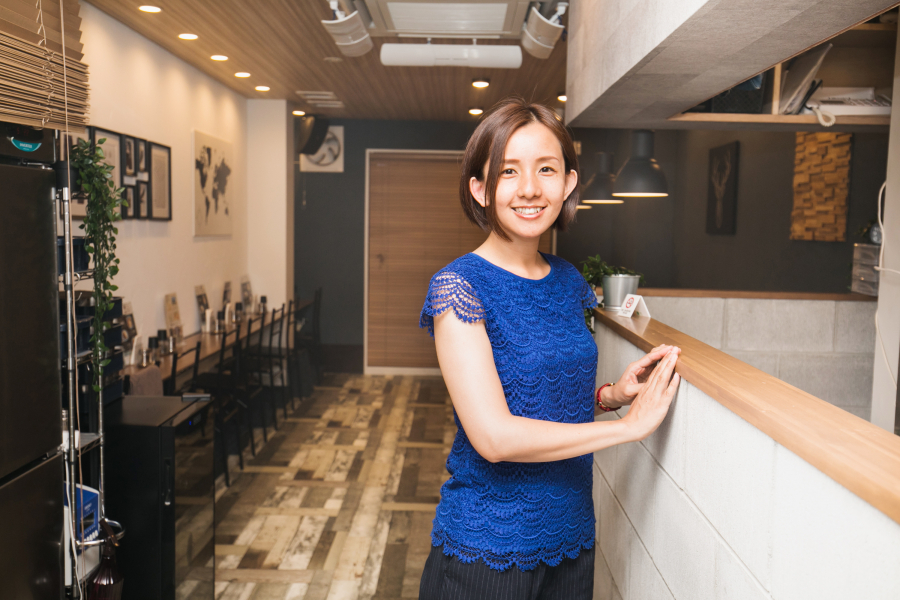
WORK MILL:What is your personal view on “work”?
Nakamura: Personally, I enjoy working very much. I view work as one of the actions a person can undertake to have a tangible impact on the world. If there is something that makes you think, “It would be great if the world were like that more,” that is probably something you can change through work. In that sense, work is something really exciting and enjoyable.
It may be exhausting when you are tied down by everyday tasks, things to do, and checklists of other must-dos, but work can actually be a lot of fun if you can adopt a work style that looks beyond that. You can always make an impact and bring joy to others through your work. It is important to work with an eye on making such an impact.
In some cases, I carry on with my work while looking ahead to the distant future. If you can work with a constant awareness of the future you want to create without getting caught up in the existing details, you will eventually start to feel, “I’m so happy to be paid for doing something like that!”
Updated on: April 27th, 2022
Interview conducted in: August 2019
Text: Sachiyo Oya
Photos: Yumi Sasaki
Illustrations: Toshiki Nonaka




